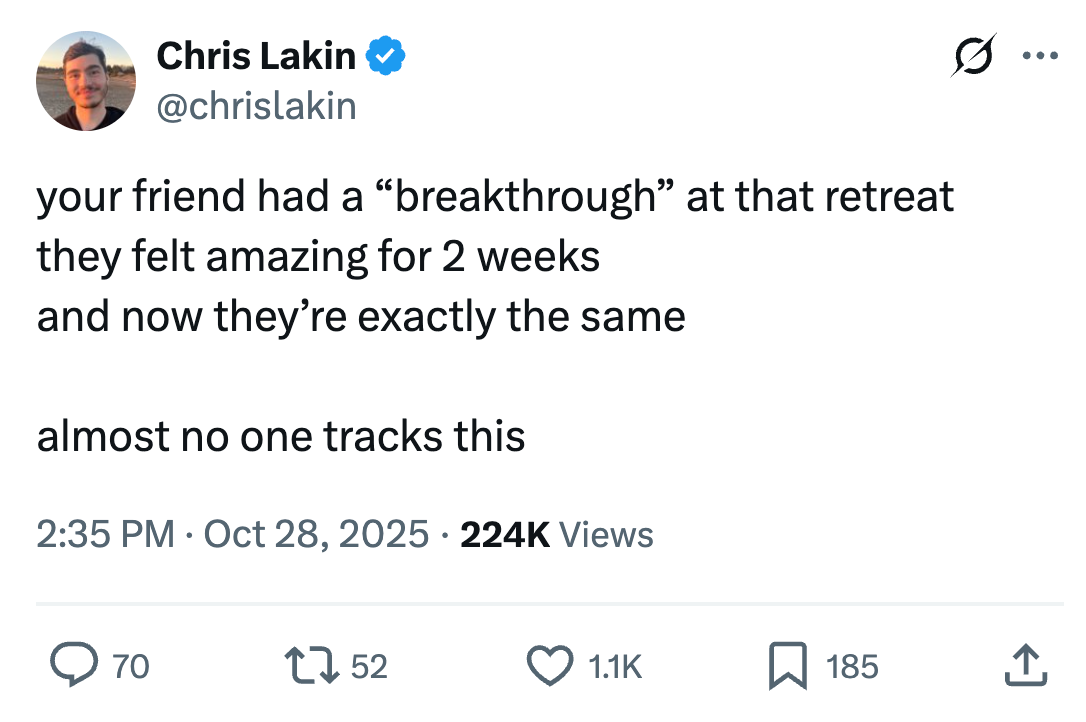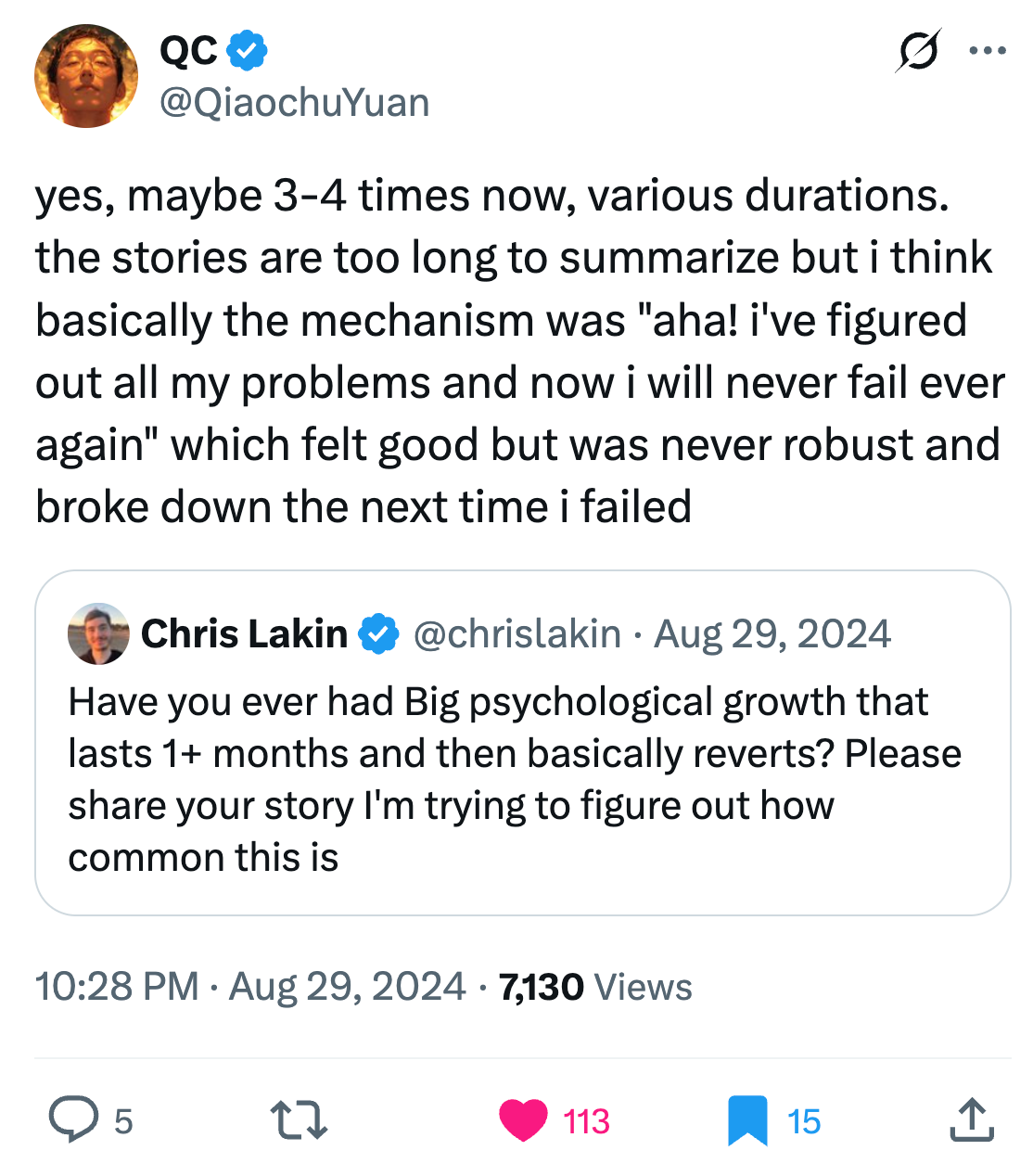Flaky breakthroughs pervade inner work. Almost no practitioners track outcomes
Has someone you know ever had a “breakthrough”… only to be no different a few weeks later?
Just as “flaky breakthroughs” are pervasive with psychedelics, they’re also pervasive with coaching, retreats, meditation, and bodywork.
Flaky breakthroughs can set people back years.
This investigation discovered almost no inner work practitioners in my network track long-term outcomes.
Discovering practitioners ignore outcomes
In early 2025, I attempted to make a list of the best practitioners on my area of twitter. 20+ coaches reached out, and I asked each to share the best evidence that they had helped coachees improve their lives.
I was hoping for stories like: “worked with a man who had never asked women out. hundreds of hours of IFS and meditation didn’t do it for him. after our first session, he asked out multiple easily… several months later he was in a happy relationship.”
Instead, the coaches shared testimonials like:
The session I just had was really nice. I felt a big release near the end!
They have such a kind presence. Best coach I’ve ever worked with!
Evidence of life improvement was almost not referenced.
I discovered that even well-respected practitioners don’t track results. For example, a well-known coach posted a video stating he’d discovered “how procrastination can completely dissolve” for a man. When the coach was asked how this claim had been verified (did the effect last? did the man ever launch the site he was procrastinating on?), the coach explained: “I do not follow up on folks after coaching as that would feel intrusive to me.”
Several months later, the man’s site still could not be located.
In another case, a popular inner work retreat calls itself “data-driven” and “life-changing”… but doesn’t track data on whether alumnis’ lives change. When an alumnus of the retreat offered to competently handle this tracking for them, for free, the retreat declined. They did not provide an explanation.
In the end, I found one—possibly two—practitioners who track how they’re helping people live better lives.
About | Twitter
V1.7: 2025 Jun 4 - 2026 Feb 10.
Thanks to Brian Toomey for the conversations that prompted this post.



![Ulisse Mini @MiniUlisse
after my @[redacted] retreat I was like "I'm never going to be depressed again!" then proceeded to get depressed again because I was no longer meditating 8hrs/day isolated from everything in my life, lol
2:42 PM · May 10, 2025 · 23.9K Views Ulisse Mini @MiniUlisse
after my @[redacted] retreat I was like "I'm never going to be depressed again!" then proceeded to get depressed again because I was no longer meditating 8hrs/day isolated from everything in my life, lol
2:42 PM · May 10, 2025 · 23.9K Views](https://substackcdn.com/image/fetch/$s_!7iT2!,w_1456,c_limit,f_auto,q_auto:good,fl_progressive:steep/https%3A%2F%2Fsubstack-post-media.s3.amazonaws.com%2Fpublic%2Fimages%2F9f008073-c393-410b-9eaa-3754d9679641_1125x851.jpeg)



Yup, this is a common problem with coaches, therapists, doctors, pharmacology, etc.. It is often why the effect size of all psychological and pharmaceutical interventions seem to decrease over time. Not just regression to the mean, but because a flaky breakthrough gives a sense of improvement. The resulting optimism shows up in all the standard and coarse psychological or clinical instruments. Most studies only study 10-12 weeks and don't track long term results. Long term results are prone to a lot of missing data from people who don't benefit. It is hard to distinguish this phenomenon from the more positive hypothesis that the intervention created a temporary period of actual neural plasticity that faded.
LessWrong version: https://www.lesswrong.com/posts/bqPY63oKb8KZ4x4YX